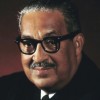I had hardly thought by asking
For five hundred I’d be tasking
The kindness of a rich old friend like you.
“Practice law,” you said, “it’s healthy,
And it soon will make you wealthy.”
Now, Gaius, tell me “Yes,” not what to do.[Mutua viginti sestertia forte rogabam,
Quae vel donanti non grave munus erat.
Quippe rogabatur felixque vetusque sodalis
Et cuius laxas arca flagellat opes.
Is mihi ‘Dives eris, si causas egeris’ inquit.
Quod peto da, Gai: non peto consilium.]Martial (AD c.39-c.103) Spanish Roman poet, satirist, epigrammatist [Marcus Valerius Martialis]
Epigrams [Epigrammata], Book 2, epigram 30 (2.30) (AD 86) [tr. Nixon (1911), “Neither a Borrower”]
(Source)
"To Caius/Gaius." (Source (Latin)). Alternate translations:
When twenty pounds I'd borrow of a friend,
One, who might give me more, as well as lend;
Blest in his fortune; my companion old;
Whose coffers, and whose purse-strings, crack with gold.
"Turn lawyer, and you'll soon grow rich," he cries:
Give me what I ask, my friend: -- 'tis not advice.
[tr. Hay (1755)]
Of sesterces a score I crave in loan,
Which scarce a boon would honest bounty own.
A fortune-blest old intimate I urge,
Whose gen'rous wealth tyrannic coffers scourge.
"Go, ply the bar: be affluent in a trice."
I ask your aid, my Cay, not your advice.
[tr. Elphinston (1782), Book 5, ep. 31]
I asked Caius to lend me twenty sestertia, a sum which could not weigh heavy on him, even if he had been asked to give and not to lend; for he was my old companion, and hd been fortunate in life; and his chest can scarcely press down his overflowing riches. He replied to me, "You will become wealthy if you will take to pleading causes." Caius! give me what I ask for, I do not ask for advice.
[tr. Amos (1858), "Unseasonable Advice"; ch. 3, ep. 89]
I asked, by chance, a loan of twenty thousand sesterces, which would have been no serious matter even as a present. He whom I asked was an old acquaintance in good circumstances, whose money-chest finds difficulty in imprisoning his overflowing hoards. "You will enrich yourself, was his reply, "if you will go to the bar." Give me, Caius, what I ask: I do not ask advice.
[tr. Bohn's Classical (1859)]
I asked, as it chanced, the loan of twenty thousand sesterces, which, even to a give, would have been no burden. The fact was I asked them of a well-to-do and old friend, and one whose money-chest keeps in control o'erflowing wealth. His answer was, "You will be rich if you plead causes." Give me what I ask, Gaius: I don't ask for advice.
[tr. Ker (1919)]
I chanced to ask a loan -- a hundred, merely;
E'en as a gift that should not task severely
A wealthy friend, and so I asked him, knowing
His pockets bulge with cash over-flowing.
"Go to the Bar," says he, "get rich by pleading" --
'Tis cash, not counsel, Gaius, that I'm needing.
[tr. Pott & Wright (1921)]
I asked you twenty thousand as a loan,
A trifle, had I craved it for my own,
Such claim might ancient friendship well afford
On one whose coffers chid their bursting hoard.
"Plead and you'll make a fortune in a trice."
I want your money, Gaius, not advice.
[tr. Francis & Tatum (1924), ep. 79]
I asked a rich old friend of mine
for a loan of twenty thousand:
No trouble at all for him to give it to me,
he was so loaded. But in answer to my request
he said, "You know what? You want to make money?
Become a lawyer." Look, Gaius:
I asked you for money, not for advice.
[tr. Bovie (1970)]
I happened to ask a Ioan of twenty thousand sesterces, no burdensome present even as a gift. He of whom I asked it was a faithful old friend, he whose coffer whips up his ample wealth. Says he to me: "You'll be a rich man if you plead cases." Give me what I ask, Gaius; I'm not asking advice.
[tr. Shackleton Bailey (1993)]
I need a loan of twenty grand.
Can you lend a helping hand?
We're friends, it's not a huge amount
Against your massive bank account.
But your reply? "Go practice law,
it's easy to get rich, ha-ha!"
So here's a thought on which to chew:
No job advice I asked from you.
[tr. Ericsson (1995)]
I chanced to seek a loan of twenty thousand --
which one could give away and not think twice.
The man I asked, a trusted longtime friend,
whose strongbox whips up riches in a trice,
said, "Be a lawyer. You'll make piles of cash."
I asked for money, Gaius, not advice.
[tr. McLean (2014)]
Quotations about:
attorney
Note not all quotations have been tagged, so Search may find additional quotes on this topic.
Despite what Hollywood would lead you to believe, we criminal defense attorneys do not advocate lenient sentences for all wrongdoers as a matter of policy. […] Our role is to stand beside our clients, no matter who they are or what they did, and be their advocates, the one person required to plead their case and argue their interests. This is the closest our society comes to grace or humility. It’s grace because we give this support to defendants whether they deserve it by any objective measure, and it’s humility because we know the system is so capable of grave error in accusing and punishing.
Ken White (b. c. 1969) American constitutional and criminal attorney, prosecutor, blogger
“Fault Lines” blog, Mimeslaw.com (8 Jun 2016)
(Source)
Every defendant is entitled to a trial in which his interests are vigorously and conscientiously advocated by an able lawyer. A proceeding in which the defendant does not receive meaningful assistance in meeting the forces of the state does not, in my opinion, constitute due process.
Thurgood Marshall (1908-1993) American lawyer, US Supreme Court Justice (1967-1991)
Strickland v. Washington, 466 U.S. 668 (1984) [Dissenting]
(Source)
The right to be heard would be, in many cases, of little avail if it did not comprehend the right to be heard by counsel. Even the intelligent and educated layman has small and sometimes no skill in the science of law. If charged with crime, he is incapable, generally, of determining for himself whether the indictment is good or bad. He is unfamiliar with the rules of evidence. Left without the aid of counsel he may be put on trial without a proper charge, and convicted upon incompetent evidence, or evidence irrelevant to the issue or otherwise inadmissible. He lacks both the skill and knowledge adequately to prepare his defense, even though he have a perfect one. He requires the guiding hand of counsel at every step in the proceedings against him. Without it, though he be not guilty, he faces the danger of conviction because he does not know how to establish his innocence. If that be true of men of intelligence, how much more true is it of the ignorant and illiterate, or those of feeble intellect.
Goe not for every griefe to the Physitian, nor for every quarrell to the Lawyer, nor for every thirst to the pot.
George Herbert (1593-1633) Welsh priest, orator, poet.
Jacula Prudentum, or Outlandish Proverbs, Sentences, &c. (compiler), # 290 (1640 ed.)
(Source)





